MORE GREATPAVILION TITLES
tap to read more 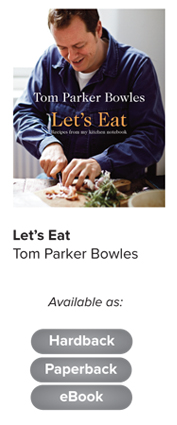
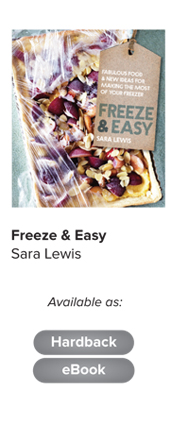
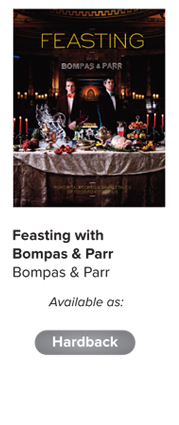
 www.anovabooks.com James Ramsden is a 27-year-old food writer and broadcaster. He has written about food and cookery for the Guardian, the Times, the FT, delicious, Sainsburys Magazine, London EveningStandard and many others, and presents the Lad that Lunches on BBC Radio 1. His supper club, the Secret Larder, is one of the most popular in London and was described by one journalist as harder to get into than the Ivy. Praise forDo-ahead Dinners: This is a book you really want. No fifteen minute magic or culinary sorcery, just practical, staged cooking of the most sumptuous dishes. The style is as lighthearted and enticing as the food.
www.anovabooks.com James Ramsden is a 27-year-old food writer and broadcaster. He has written about food and cookery for the Guardian, the Times, the FT, delicious, Sainsburys Magazine, London EveningStandard and many others, and presents the Lad that Lunches on BBC Radio 1. His supper club, the Secret Larder, is one of the most popular in London and was described by one journalist as harder to get into than the Ivy. Praise forDo-ahead Dinners: This is a book you really want. No fifteen minute magic or culinary sorcery, just practical, staged cooking of the most sumptuous dishes. The style is as lighthearted and enticing as the food.
All you need for stress-less kitchen loitering. Yotam Ottolenghi James Ramsdens writing is so compelling and his recipes so accessible that Do-Ahead Dinners made me want to run straight into the kitchen and start cooking. His is a refreshing, distinctive and authoritative voice in contemporary food writing. Russell Norman of Polpo Its fantastic. I want to cook every single thing in it. India Knight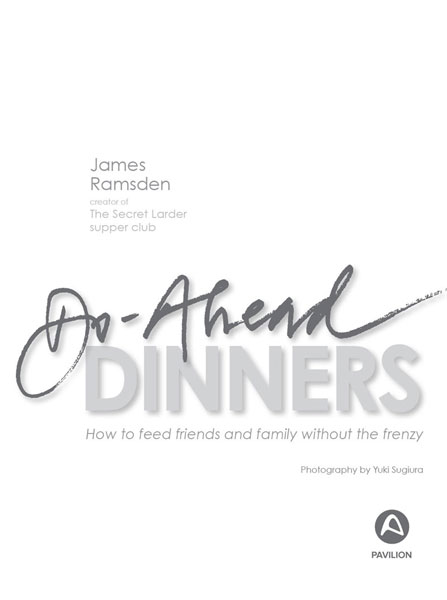 FOR ROSIE NOTES 1 teaspoon = 5ml; 1 tablespoon = 15ml.
FOR ROSIE NOTES 1 teaspoon = 5ml; 1 tablespoon = 15ml.
All spoon measurements are level. Both metric and imperial measures are given for the recipes. Follow either set of measures, not a mixture of both, as they are not interchangeable. Medium eggs should be used, except where otherwise specified. Free-range eggs are recommended. Note that some recipes contain raw or lightly cooked eggs.
The young, elderly, pregnant women and anyone with an immune-deficiency disease should avoid these, because of the slight risk of salmonella. To sterilize jars for pickles, sauces and jams, put the jars in a preheated oven at 150C/300F/Gas mark 2 for 20 minutes.  Contents
Contents
INTRODUCTION
The Secret Larder supper club was born in the spring of 2010, perhaps a month after my sister and I had moved into the chemistry classroom in a converted schoolhouse, and a year after the London supper club movement had begun to take shape. These were informal restaurants crowbarred into peoples living rooms and kitchens, helmed by chefs on sabbatical or, as in my case, enthusiastic cooks. There was, I suppose, no great concept. I wanted an excuse to cook for lots of people on a regular basis and my sister Mary was happy to play front-of-house.
Wed exhibit different artists and photographers, rope in friends to help in return for food and wine, and base menus on whim or weather. Before we knew it, powered by social media and some vigorous emailing, we were booked up for the next few months, despite no one yet having actually eaten any of the food or assessed the ricketiness of the furniture. I soon realized that as far as the food was concerned, the only way to feed twenty people four courses, with one oven and four hobs, and in full view of everyone (its an open kitchen, so no hiding from guests or putting dropped food back on plates), was to cook as much as possible in advance. This wasnt the restriction it first seemed. It meant I could be organized hours before the first knock on the door, it meant I could talk to guests when they arrived instead of being wedged in the kitchen, and it meant that the experience of feeding a bunch of strangers was, far from being an ordeal, enormous fun. It was a theory that was put most rigorously to the test when we moved the supper club to Printers and Stationers, a wine shop in East London with all the atmosphere we could have hoped for, but nothing that really resembled a kitchen.
So now I cook everything at home, chuck it in the back of the car, and turn up just in time to stick on an apron and dish up. Im becoming increasingly convinced that this is the ideal way for anyone to cook for guests, as it eliminates one of the greatest stresses of feeding people that of being in a deranged flap when it comes to dinner. This way, instead of being the stereotypical panicked and mucky-aproned host when your friends arrive clutching bottles and shaking umbrellas, you are in a state of complete control and composure. You can mix drinks, dish out something to nibble on, and actually have a conversation with your guests. 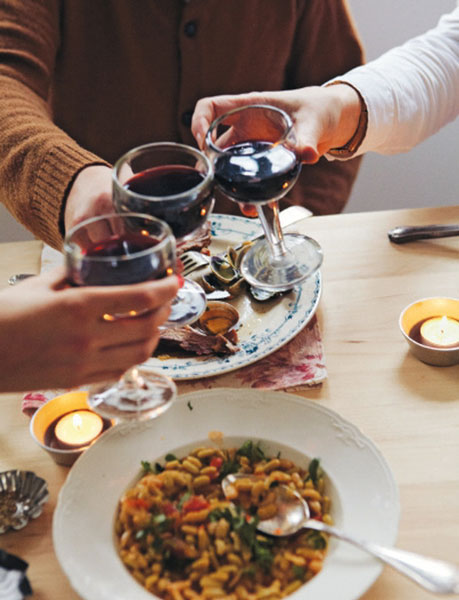 The cooking side of things becomes so much more enjoyable, too. You are not cooking against the clock or racing anyone, but rather taking things at your own pace and on your own terms.
The cooking side of things becomes so much more enjoyable, too. You are not cooking against the clock or racing anyone, but rather taking things at your own pace and on your own terms.
It is you who is in charge, not the recipe writer. THE RECIPES This is the food I like to cook, the food I want to eat. It is home cooking with perhaps only the slightest swagger simple recipes with just enough of a twist to lift them above the quotidian. Each recipe is divided into sections according to what you can do ahead, and what you need to do to complete the dish before serving. (This is not a book of lasagnes and cottage pies there will, with many of these recipes, be a couple of things that need doing to finish each dish. My aim is to keep cooking for friends as stress-free as possible, eliminating the scope for last-minute cock-ups while maintaining a sense of freshness and, I suppose, modernity.) Of course, such a system is not exhaustive.
There is nothing stopping you from sweating some onions and then buggering off for four hours before continuing with a dish. But it would be nigh on impossible for me and impossibly dull for you to cover every eventuality. Ive tried to break recipes up into natural stages. The most important thing is to read a recipe in full before you start cooking, in order to work out the best way forward for you. As for the kit required, well, theres nothing out of the ordinary. I use an ice-cream machine but its not essential; a food processor is handy but you can largely get by without one; a blender is useful for soups a handheld stick blender works just as well and is much cheaper.
Im afraid its really just the old clichs of a decent sharp knife and a couple of solid saucepans that Id view as, if not quite essential, at least more efficient than a dull knife and flimsy pans. Oh, and bowls. You can never have too many bowls. Because youre preparing food in advance, youre going to need somewhere to store it, and a good set of mixing bowls that stack neatly in a cupboard will be your best friend. I have cooked all of these recipes in one form or another for twenty people at the Secret Larder. None of them is outrageously complex or challenging.
Some are relatively quick to throw together, and others take a little longer. In the age of the 15-minute meal, Id say this is no bad thing. PLANNING A MENU First of all I would urge you not to feel as if you have to serve three or four courses. Many of these dishes happily stand alone a soup for a midweek supper, a roast pork belly for Sunday lunch and so theres no need for a banquet if you lack the time or energy. But should you decide to roast the whole hog, then there are one or two things to keep in mind. You need a menu that is practical.
Next page
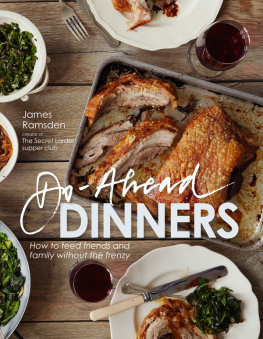
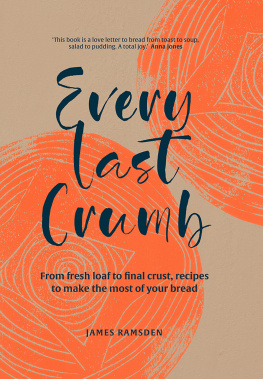
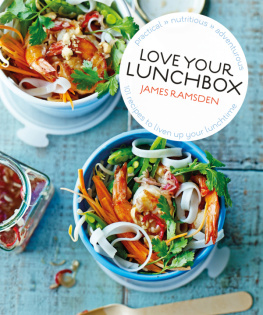

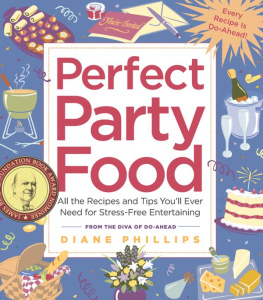
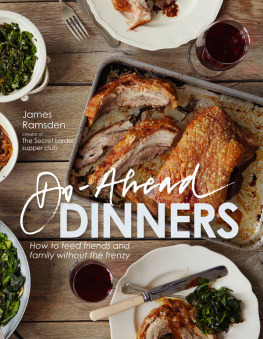
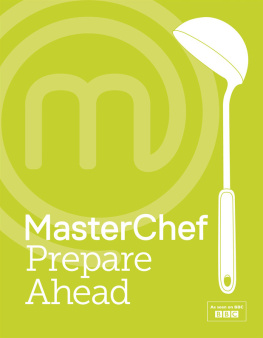
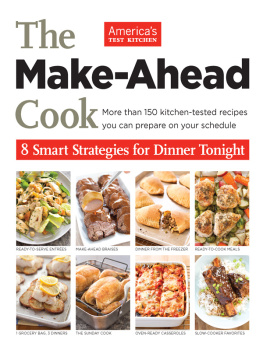
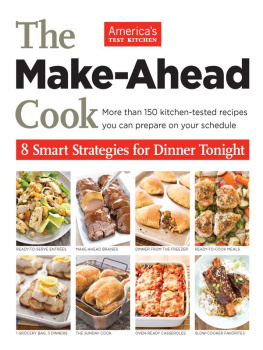



 www.anovabooks.com James Ramsden is a 27-year-old food writer and broadcaster. He has written about food and cookery for the Guardian, the Times, the FT, delicious, Sainsburys Magazine, London EveningStandard and many others, and presents the Lad that Lunches on BBC Radio 1. His supper club, the Secret Larder, is one of the most popular in London and was described by one journalist as harder to get into than the Ivy. Praise forDo-ahead Dinners: This is a book you really want. No fifteen minute magic or culinary sorcery, just practical, staged cooking of the most sumptuous dishes. The style is as lighthearted and enticing as the food.
www.anovabooks.com James Ramsden is a 27-year-old food writer and broadcaster. He has written about food and cookery for the Guardian, the Times, the FT, delicious, Sainsburys Magazine, London EveningStandard and many others, and presents the Lad that Lunches on BBC Radio 1. His supper club, the Secret Larder, is one of the most popular in London and was described by one journalist as harder to get into than the Ivy. Praise forDo-ahead Dinners: This is a book you really want. No fifteen minute magic or culinary sorcery, just practical, staged cooking of the most sumptuous dishes. The style is as lighthearted and enticing as the food. FOR ROSIE NOTES 1 teaspoon = 5ml; 1 tablespoon = 15ml.
FOR ROSIE NOTES 1 teaspoon = 5ml; 1 tablespoon = 15ml. Contents
Contents The cooking side of things becomes so much more enjoyable, too. You are not cooking against the clock or racing anyone, but rather taking things at your own pace and on your own terms.
The cooking side of things becomes so much more enjoyable, too. You are not cooking against the clock or racing anyone, but rather taking things at your own pace and on your own terms.